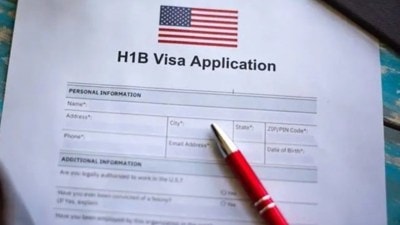Stay updated with the latest - Click here to follow us on Instagram
Left Front calls it a day after 34 years
After seven straight victories,the Left Front government in WB came crumbling down.
After seven straight victories,the Left Front government in West Bengal today came crumbling down,unable to withstand the paribartan (wave for change) of the Trinamool Congress.
The CPI(M)-led Front built on its strength as the harbinger of land reforms,was the champion of the poor for 34 years of uninterrupted rule,till it hit a brick wall over its decision to acquire land for industry.
The tenure of Buddhadeb Bhattacharjee heading the sixth Left Front government made a promising start in 2001 when it won 199 of the 294 seats.
During his second tenure in 2006 after the Left Front emerged victorious winning a stupendous 235 seats,quite paradoxically,recurring electoral defeats followed since the 2008 panchayat elections,reflecting the writing on the wall.
The down slide began when Bhattacharjee,began to transit from a leader of the masses to corporate India¿s preferred chief minister.
Bhattacharjee,immediately after the swearing-in ceremony on May 18,2006 flanked by Tata Sons Chairman Ratan Tata announced the Nano small car project at Writers¿ Buildings.
Bhattacharjee started his second tenure with the now famous do it now slogan to improve work culture in the state which was notorious for its bandhs and strikes. The slogan died a natural death.
The communist chief minister courted capitalists,perhaps not out of choice,but necessity. Industrialisation was clearly the way forward and the chief minister was willing to implement it,whatever it cost.
Even if it meant using veto powers against his allies to renew German wholesaler Metro Cash & Carry¿s Agricultural Produce Market Committee licence to banning the words gherao and bandhs from the lexicon of the Centre of Indian Trade Unions (CITU),he did it all.
The going was good,and Bhattacharjee,the poster boy of the Left Front,leveraged the gains in the 2006 Assembly elections. The results were taken as a mandate for industrialization.
On March 14,2007,14 villagers were killed in police firing in Nandigram ¿ the site for a proposed chemical hub in East Midnapore district.
Gopal Krishna Gandhi the then governor in an indictment of the state government had said: The news of deaths by police firing in Nandigram this morning has filled me with a sense of cold horror. The recapture of Nandigram by the CPI(M) from the Trinamool Congress was to follow,which the chief minister was to later justify as paid back in their own coin.
Strongly disapproving the recapture,Gopal Krishna Gandhi had said the manner in which the recapture of Nandigram villages is being attempted is totally unlawful and unacceptable. When protests in Singur,spearheaded by Trinamool Congress chief Mamata Banerjee,gained momentum,the government failed to tackle it.
The fallout was that the state government could not retain the Nano project,and its vote share.
In the 2008 panachayat elections and the Lok Sabha elections the following year,the Left Front was defeated,while Banerjee¿s Trinamool Congress,which was decimated in the previous Assembly elections,resurrected.
What followed were admissions that the Nandigram firing was wrong,but by then it was too late.
Next came the firing at Netai village in West Midnapore district on January 7 this year,when alleged armed CPI(M) cadre opened fire on defenceless villagers killing nine.
This was denounced by Bhattacharjee,but a can of worms opened — the allegation levelled repeatedly by the Trinamool Congress chief Mamata Banerjee that CPI(M) harmards were ruling the roost in West Midnapore district came to be taken up by the Centre,signalling that the state government was not only doomed on the industrial front,but also on law and order.
The Left Front often spoke of a rectification drive and introspection,but failed to make headway as it lost election after election since 2008,including the prestigious Kolkata Municipal Corporation last year.
Statistics had long indicated that it would be an uphill task for the Front.
Investment proposals came pouring in while the need for land acquisition was escalating. Agitation against land acquisition instantly reared its head. Of 1,350 million acres of agricultural land,the government held only 23,000 acres.
And,only five per cent of this was fallow.
Lack of investments and over-dependence on agriculture took a toll on revenue collection and,in turn,the state¿s finances. Debts ballooned to a staggering Rs 1.86 lakh crore.
The state¿s list of investment proposals since Bhattacharjee took charge might be long,but success stories were few.
JSW Steel¿s 10-million-tonne steel plant was one of the few mega greenfield projects in the country to get land.
The Front government also put its best foot forward to provide land to Wipro for its second campus.
The Bengal IT policy was formulated in 2003 and during 2001-05,the sector,with 32,000 employees,witnessed a 70 per cent growth,albeit on a low base. Wipro was the new feather in the cap of the LF,and Bhattacharjee was affirmed the best chief minister by Azim Premji.







